Mindset is an idea proposed by Stanford University psychologist Carol Dweck based on her research in motivation and development. According to Dweck, people generally have a tendency to think with one of two different mindsets: a fixed mindset or a growth mindset. As you start this semester, it can be useful to think about some ideas and strategies that will help you to succeed. In these materials, we will describe some ideas about motivation, based on cutting-edge research, and offer some suggestions for how to get the most out of Mastering and your course. Watch the following videos and answer the accompanying questions to learn more. Do You Have a Growth Mindset? Part A Which of the following describes a growth mindset, as opposed to a fixed mindset? Challenging yourself by persisting longer with problems helps to grow your mental muscle Learning and growing your brain through opportunities helps performance in school Believing your talents, abilities, and intelligence can be developed in different ways All of the above phrases describe the growth mindset Part B What is neuroplasticity? The ability to make new and stronger connections between the neurons in our brain as we learn The inability to change intelligence, which is fixed in the neurons in our brain from birth Having a fixed mindset in some ways, and a growth mindset in others Part C How do students with a growth mindset see their mistakes? As opportunities to learn and improve their brain As something that shouldn't happen in proper learning As reasons to give up and avoid further challenges Part D How can you use Mastering to develop a growth mindset and embrace your mistakes? Question what went wrong and use hints or provide problem feedback to develop a new strategy Repeat the question without changing your approach and input a different answer Part E Why is the word "yet" powerful in developing a growth mindset? It encourages you to continue along your learning journey, as you have not yet reached the final destination. It encourages you to stop trying when you fail because you are not smart enough and should choose a new subject to study. It encourages you to skip steps necessary to learn difficult concepts, and thus see results more quickly. Part F Which is NOT an element in developing expertise in a field? Giving up Asking for help Putting forth effort Trying new strategies Part G How do people with a growth mindset view and respond to challenges? They see challenges as signs their brains are getting weaker. They see challenges as a waste of effort and are embarrassed. They see challenges as opportunities to learn and push their abilities.
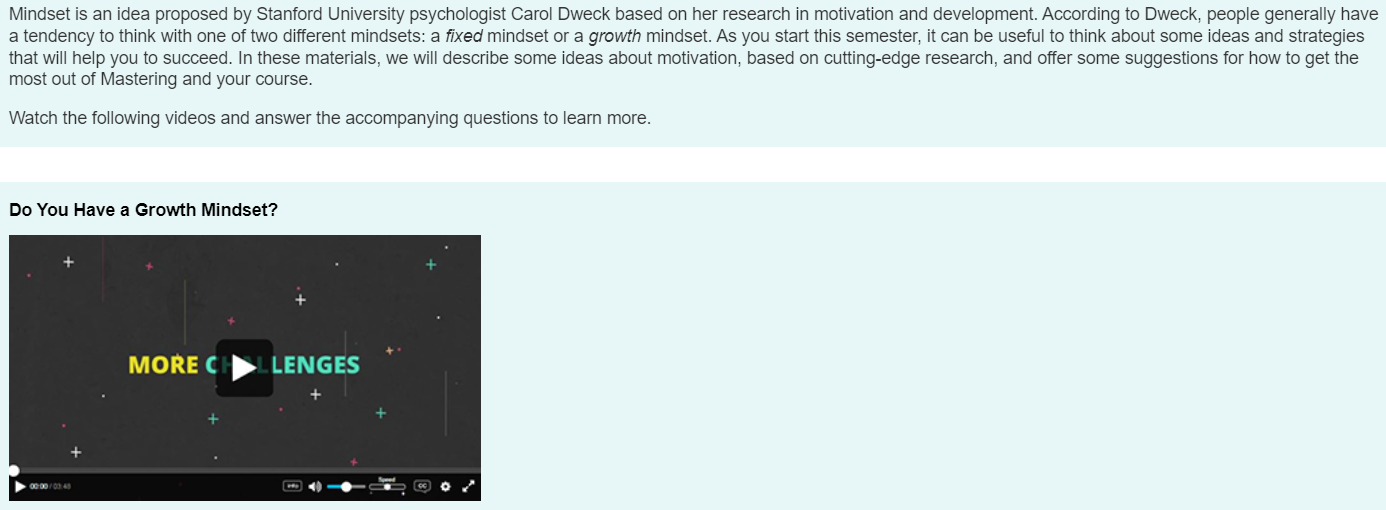
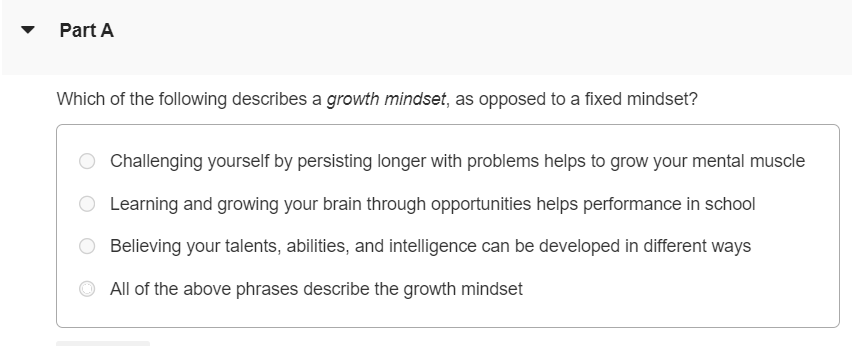

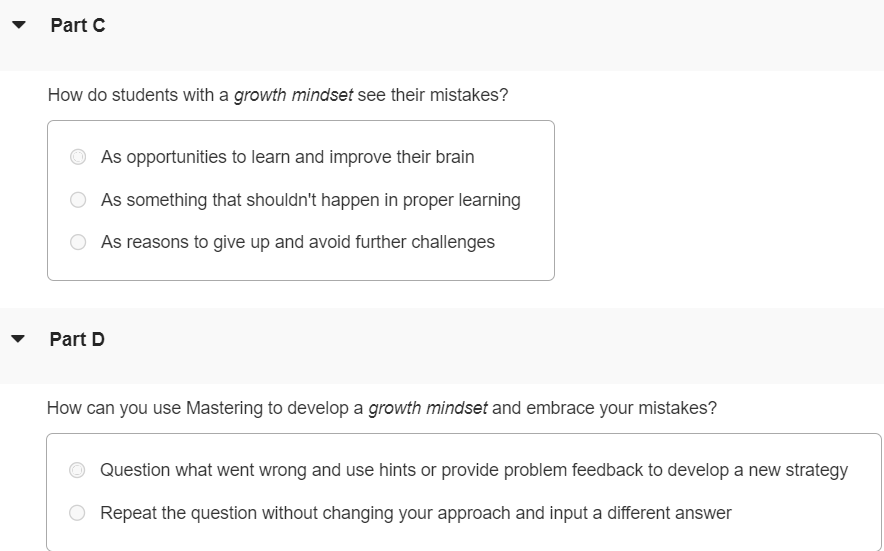
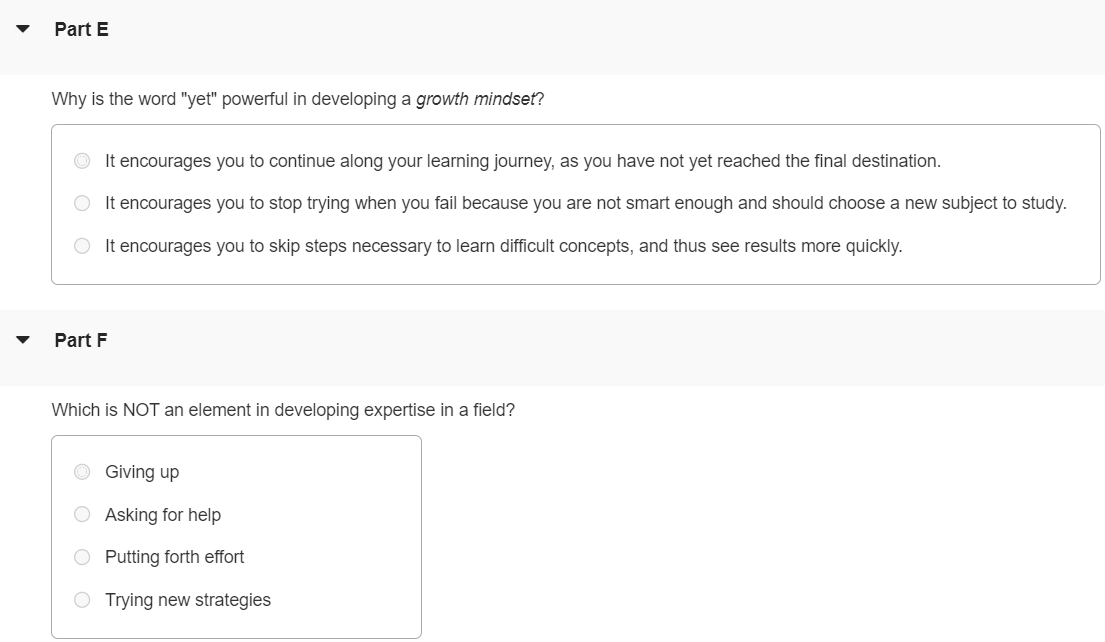
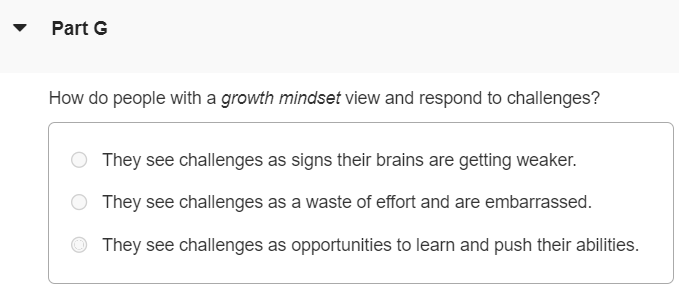


You'll get a detailed, step-by-step and expert verified solution.
 Work With Experts to Reach at Correct Answers
Work With Experts to Reach at Correct Answers